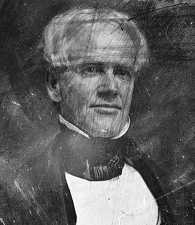Horace Mann was an educational pioneer. At a time when many saw considerable problems in American education, he stepped forward to address the issues, serving as an advocate for teachers, creating libraries and promoting equal education for everyone.
Horace Mann’s Early Days
Horace Mann was born in Franklin, Massachusetts, on May 4, 1796. His parents were farmers, and his early life was filled with poverty and exhausting work. Horace’s time in school was limited; he only spent around three months a year receiving instruction. By the time he was 10, Mann had learned the tenets of the orthodox Calvinist faith. At the age of 23, however, he decided to convert to Unitarianism.
Time spent pouring over books from the library and a stint with a traveling teacher helped Mann earn his way into Brown University in Providence, Rhode Island. Upon graduating in 1819 he received top honors as the valedictorian of his class.
After graduation, Mann studied law and married Charlotte Messer, the daughter of the Brown University president. The marriage didn’t last long, however, as Charlotte died of tuberculosis fewer than two years later. Mann gave up his law practice and moved to Boston, where he met his future wife Mary Peabody. A life of public service followed.
Sources in this Story
- University of Notre Dame: Horace Mann
- Encyclopedia Brunoniana: Mann, Horace
- PBS: Only A Teacher: Horace Mann (1796-1859)
- U.S. House of Representatives History, Art & Archives: Mann, Horace
Mann’s Notable Accomplishments
Between 1827 and 1848, Mann served as a state representative and senator in the Massachusetts Legislature. He helped create a state mental hospital in Worcester, Massachusetts. He also voted to create the country’s first state education board in 1835.
Mann accepted a position as first secretary of the Massachusetts State Board of Education in 1837. His work in this field prompted him to leave politics behind to begin addressing the deficiencies he spotted in the state’s public education system.
Mann believed that a well-educated public was necessary for a democracy to function properly. “Without undervaluing any other human agency, it may be safely affirmed that the Common School…may become the most effective and benignant of all forces of civilization,” he stated.
During his years as the first secretary, he created schools for teacher training, established school district libraries and campaigned for financial support of public education. He also organized teacher conventions, called for longer school years and advocated for higher teacher pay and improved schoolhouses.
“Charity schools” for the poor transformed during Mann’s tenure to free public schools based on sound educational principles. His educational theory was based on the idea that no society would be successful unless citizens were “literate and educated.” Schools were meant for anyone, regardless of gender, race or social class, he believed.
The Man and His Work
- “On the Art of Teaching,” by Mary Mann, Horace Mann
- “Horace Mann: The Educator,” by Albert E. Winship
The Rest of the Story
In 1848, Mann was elected to Congress, filling the empty seat left by the death of John Quincy Adams, and took up a fight against slavery. In 1852 he declined to run again for Congress, and declined nomination for Governor to become president of Antioch College in Ohio instead. The Christian church that hired him didn’t realize how committed Mann was to his beliefs and social causes.
The church split with the school a few years after he arrived. Financial concerns began troubling Mann and his family, and some say his wife believed the stress of the situation contributed to his death.
Two months before he died, Mann spoke to the graduating class of Antioch and said, “Be ashamed to die until you have won some victory for humanity.”
The school responded to Mann’s admonition. Antioch carried out his beliefs of equal education for all and became the first college in the United States to educate women as equals with men, and black students as equals with whites.
This article was originally written by Lindsey Chapman; it was updated April 3, 2017.











